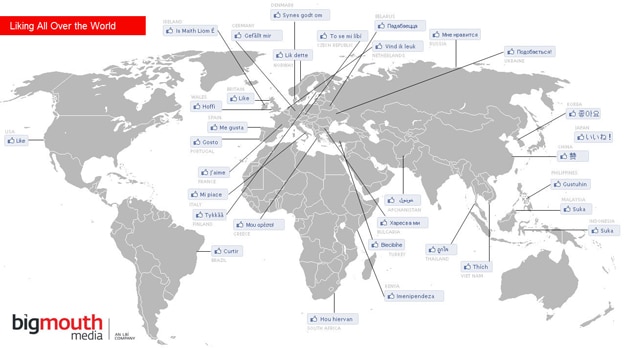I feel blessed that my native language is English since that is the language that is most prevalent online (at the moment). We all know that will most likely change in the not so distant future, but for now, that seems to be what is universally accepted.
I always admire my friends who speak and write in English as a second or third language. I can speak Spanish, but if I had to write a blog post in Spanish, it might be a problem. I’d be all over the place with my grammar. Keep that in mind next time you visit a blog with grammar mistakes that seem obvious to you. Many times those posts are written by people who are not native English speakers. I think instead of scowling at the errors, we should be admiring that person’s blogging courage and dedication to publish something in a different language.
We’ve all seen those lists (especially circulating on Twitter) that say things like, “How to say hello in different languages” or “How to say thank you all around the world.” What about Facebook likes? As Facebook continues to implement new languages on the site to make communication easier and more accessible for people around the world, it might be fun to see “How to say like in other languages.”
On visual.ly, I found this cute chart created by Michael Thomson at bigmouth media. As Michael explains on the bigmouth blog, some of these words don’t translate exactly to like; however, these words were taken directly from Facebook itself, and sometimes (maybe for length reasons?) Facebook uses different words than you might expect. Of course, many countries are excluded from this list. It wasn’t created to be perfect and exact, it was created for fun. You can visit the bigmouth blog link for a complete table, more information, and an interesting perspective on how languages will affect online localization.
Click Here For Enlarged Image

COMMENTS